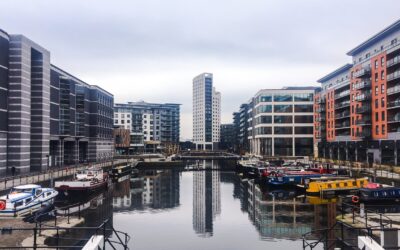Coriance has secured the contract for an expansive heating network that will be developed over coming years, encompassing 14,500 homes in Greater Lyon • Montpellier plans to quadruple the reach of its district heating network, connecting another 40 000 residents to its network • Millau gets the green light to develop its own district heating network – the investment is forecasted to amount to 8.5 to 12 million EUR • Read more about the developments in sustainable heating and cooling in this month's news update from France

In a significant development, the Lyon Metropolitan Area has entrusted Coriance with the responsibility of establishing a heating network that will span across three key municipalities: Oullins-Pierre-Bénite, Saint-Genis-Laval, and La Mulatière.
The new network in the south-west of the city will cover 14,500 equivalent housing units, 38 kilometres of network and around 140 GWh per year of heat delivered. Lyon Metropolitan Authority has outlined that this makes the project one of the largest heating networks in France.
Coriance emerged victorious in securing the project through a European-wide call for tenders, primarily due to its thought-through architectural integration of the prospective boiler plant, planned to be situated in the Mouche area of Saint-Genis-Laval. Coriance will therefore oversee both the construction and operation of the network. The public service concession is set for a duration of 25 years, commencing on March 1, 2024. Anticipated to kick off in 2024, the project aims to initiate its first heat deliveries by the end of 2025.
In terms of energy infrastructure, the plan involves the construction of two plants to supply the district heating network with heat. The first plant, integrated within the Oullins-Pierre-Bénite wastewater treatment plant, will utilize heat pumps to harness waste heat from the treatment plant. Additionally, biogas boilers for backup and support will be installed at this location. The second plant, situated at the intersection of rue Guilloux and chemin de la Mouche in Saint-Genis-Laval, will feature biomass boilers, biogas boilers for backup, and thermal storage to enhance the efficient management of renewable and recovered energy.
Currently, the region hosts seven district heating and cooling networks, operated by various entities such as Dalkia in Centre Métropole, Vénissieux, Vaulx-en-Velin/Grande Île, Lyon-La Duchère, La Tour-de-Salvagny, Givors, and Rillieux-la-Pape. The abundance of district heating networks is anticipated to contribute to competitive heating rates for end-users.
Read more in article from Mes Infos
During a recent press conference, Montpellier’s Mayor Michaël Delafosse announced that Montpellier’s metropolitan landscape will be gearing up for a significant transformation of its district heating network by 2030.
With district heating already benefiting 20,000 residents in Montpellier, the plan has an ambition to quadruple the reach of the current heating networks in the area. Delafosse announced that the network additions will ensure that another 40,000 residents will be connected by 2030, in addition to local business and public institutions. Construction work has already commenced on streets such as avenue Pablo Neruda and avenue Louis Ravas.
A key motivation behind this expansion is the desire to reduce dependence on fluctuating electricity prices. The mayor emphasized a shift towards a more self-sufficient model, highlighting the construction of a boiler room scheduled for completion by the end of 2025. This facility aims to supply energy equivalent of the consumption of 25,000 homes. The Mayor underscored that this will enable a stable and predictable energy price in the long term.
The initiative is not solely for residential areas but extends its benefits to businesses and public services. The Mayor Delafosse pointed out that these entities did not receive the tariff shield that residential houseowners have received, meaning that stable energy prices will bring notable benefits to the local business climate.
Read more in article from France Bleu
In a recent development, the feasibility of a future district heating network in Millau has received approval, marking a pivotal moment for the city’s energy infrastructure. The investment required for this project is estimated to be between 8.5 and 12 million EUR, depending on the technical choices made during its implementation.
The consultation procedure, initiated this February, is on track to conclude by april 2025. This means that the submission of tender documents (dossier de consultation des entreprises, or DCE), approval of candidates, site visits, and negotiations will take place between during 2024, culminating in the selection of the concessionaire in spring 2025.
While this decision may seem recent, it stems from a proposal initially outlined in 2017 by the Millau Grands Causses Community of Municipalities. The approval, granted during the latest town council meeting, aligns with the broader vision laid out in the territorial climate-energy plan for the Grands Causses Regional Nature Park. The overall investment cost for the project is eligible for subsidies from the ADEME heat fund, ranging from 4.7 to 6.6 million EUR.
Read more in article from Midi Libre
To stay updated on news for sustainable heating and cooling, follow us on LinkedIn, and subscribe to our Newsletter.
Sweden is at the forefront of decentralised heat networks technology. Our aim for “Sustainable Heating & Cooling by Sweden” is to facilitate knowledge sharing between British, French and Swedish stakeholders and develop and encourage environmental and economic best practice.
To find out how we can help you and your organisation, please contact our London or Paris-based “SHC” teams. We can introduce you to leading consultants, suppliers of technology and services who will be pleased to share know-how of the development of sustainable heating & cooling solutions.


